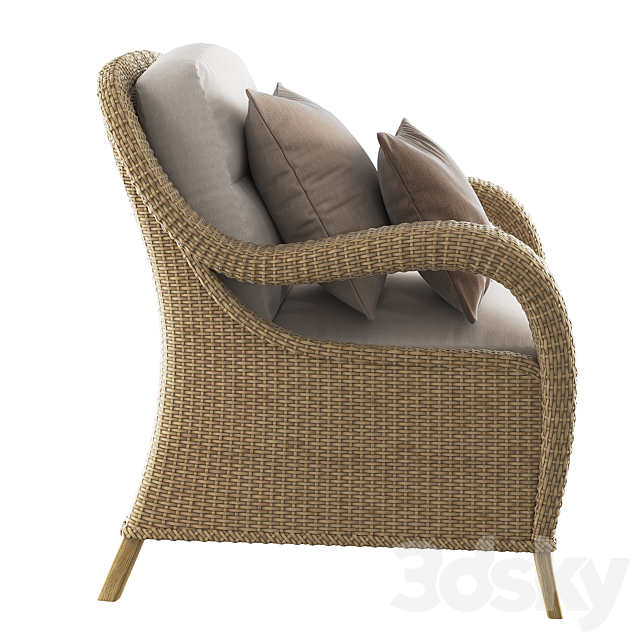10 Tips for Buying and Exporting Other Furniture from Kenya
10 Tips for Buying and Exporting Other Furniture from Kenya
Before you start hunting for local furniture manufacturers, have a look at the kind of furniture you need. Are you looking for a desk? A sofa? Or maybe something more exotic, like a cedar bench or an upholstered chess table? There are many types of furniture that can be manufactured in Kenya, and because there are so many different kinds of furniture it’s important to know which ones will be easiest to export from Kenya. Some pieces can’t be exported from Kenya, others are easier to ship overseas than others, and some have special restrictions on their transportation or sale. In this blog post we take a look at 10 useful tips when buying and exporting other types of furniture from Kenya. These tips will help you save time, money and frustration as you set up your business.
Ask your manufacturer what they can export from Kenya.
Before you start looking for furniture manufacturers in Kenya, you should find out what types of products they can export. Some manufacturers are more specialised than others, and some specialise in very specific furniture. While most manufacturers will be able to make you desks, chairs, tables and other standard pieces, they may not be able to make other types of furniture. For example, a manufacturer who primarily makes cabinets and bookshelves may not be able to make a custom sofa for you, even if you’re happy to pay a higher price.
Set a budget before you start searching for manufacturing companies in Kenya.
While you may find some companies that are willing to make you any piece of furniture at any price, most manufacturers will have a minimum price for the items they make. And while you may be able to find a manufacturer who will make you a custom sofa for $500, you may also find other companies who need $5000 or more. Before you start negotiating prices with manufacturers, it’s important to set a budget. You can use our price guide to help you set a budget, or you can use our Furniture Export Cost Calculator to get a better idea of how much you can expect to spend on each item you order.
Don’t import the cheapest items from Kenya.
While it’s important not to spend more than you can afford, it’s also important not to spend too little. If you spend too little on your furniture, you will end up with items that are of low quality, break quickly and leave you with a reputation for selling poor furniture. Offsetting the cost of cheap furniture, shipping and repairs can quickly eat up your profits, and even if your customers are happy to buy your cheap furniture, you’ll still have to deal with the damage and customer service issues that come with low quality goods.
Meet with more than one manufacturer before signing a contract.
It’s important to meet with more than one manufacturer before signing a contract. When you’re in the market for a large order, it’s easy to be impressed by the first manufacturer you meet. But if you only meet with one company, you won’t get a full picture of the local furniture industry. If you don’t meet with at least two manufacturers before you sign a contract, you may miss out on better deals, better quality products and other advantages that could help your business succeed.
Exporting furniture is complicated; be prepared for delays and snags.
Exporting furniture from Kenya can be a complicated process, and even if your manufacturer is skilled, their suppliers may not be. It’s important to factor in extra time for your products to be made, for them to be shipped to you, and for you to arrange for shipping to your customers. If you’re importing furniture from Kenya, you may face unexpected delays and paperwork issues from your government. You may also need to meet special conditions if you’re shipping internationally.
Make sure your manufacturing contract includes a warranty on exported goods.
Before you sign a contract with a manufacturer, it’s important to make sure they include a warranty on the items they make for you. If your manufacturer is making furniture for local customers, they may be able to give you a warranty that applies to goods sold in Kenya. But if you’re importing that furniture and selling it abroad, you’ll need a warranty that is valid in other countries. A warranty is especially important if you’re selling your goods online, as many buyers will be hesitant to purchase goods without a warranty.
Know which types of Kenyan furniture are easiest to export and which will cause problems during shipping or customs.
Each type of furniture has its own set of challenges when it comes to exporting goods from Kenya. Here are a few common types of Kenyan furniture and the challenges they can face: – Leather goods: Some leather goods can’t be exported from Kenya because of restrictions on animal products. Bags, briefcases and other leather goods can be impounded by customs in some countries if they contain Kenyan-made leather. – Ebonised furniture: Ebonised furniture can be problematic to export, as the use of alder wood can sometimes be restricted. – Stools: Stools can be a problem to export, as both their size and the materials they’re made from can cause them to get stuck in customs. – Custom furniture: Some custom furniture can be difficult to export because of its size, the materials it’s made from, or the type of workmanship it uses. Make sure your manufacturer knows they’ll be shipping their goods overseas.
Find out how much other manufacturers are paying their workers before deciding on your own wages.
It’s important to find out how much other manufacturers are paying their workers before deciding on your own wages. Although Kenyan law requires that all workers be paid a minimum wage, some companies may not be following this rule. It’s important to pay your workers a fair (and legal) wage. Not only will this help your business stay compliant with Kenyan laws, it will also help you recruit and retain workers. Find out what other manufacturers are paying their workers before you start negotiating with potential manufacturers.
Make sure you know the market price for local furniture in Kenya before setting your prices.
Before you set your prices, make sure you know the market price for local furniture in Kenya. You may want to start by looking at the prices for furniture imported from China or India. You can also use our price guide to get an idea of what customers are currently paying for furniture in Kenya. The prices you set for your furniture will have a huge impact on your business, so take the time to research the market price for local furniture in Kenya before you decide on your prices.








LEAVE A COMMENT
You must be logged in to post a comment.